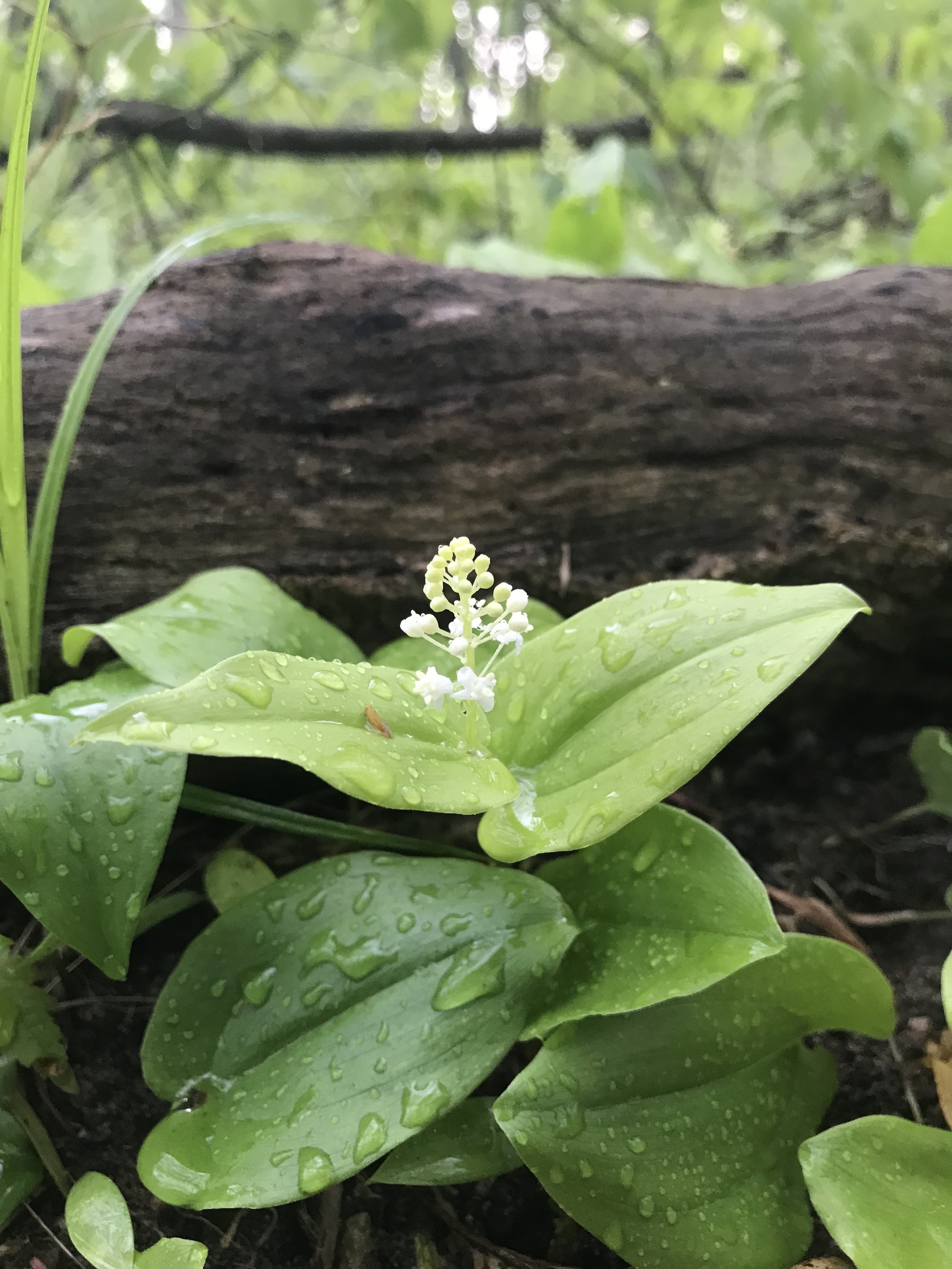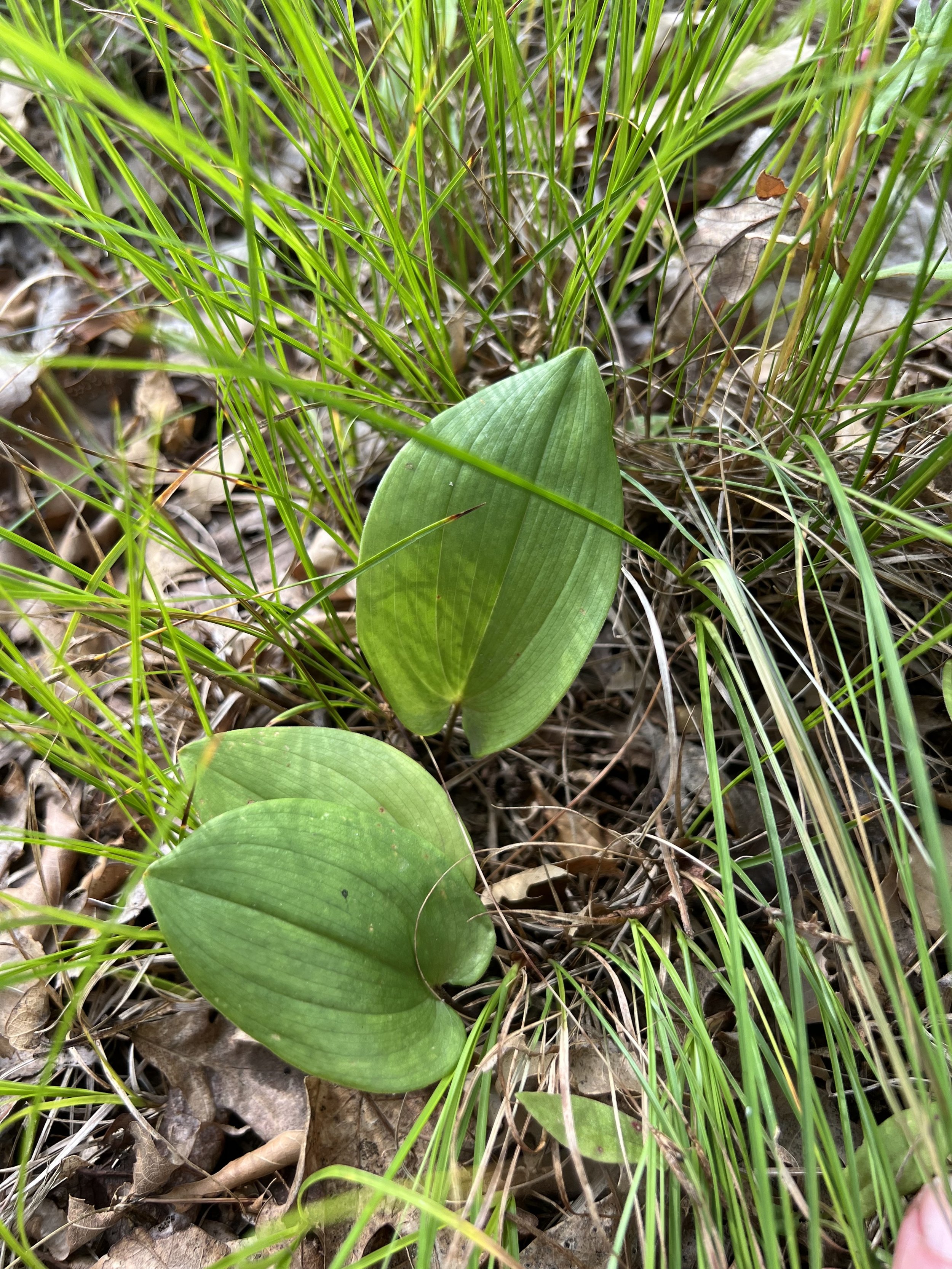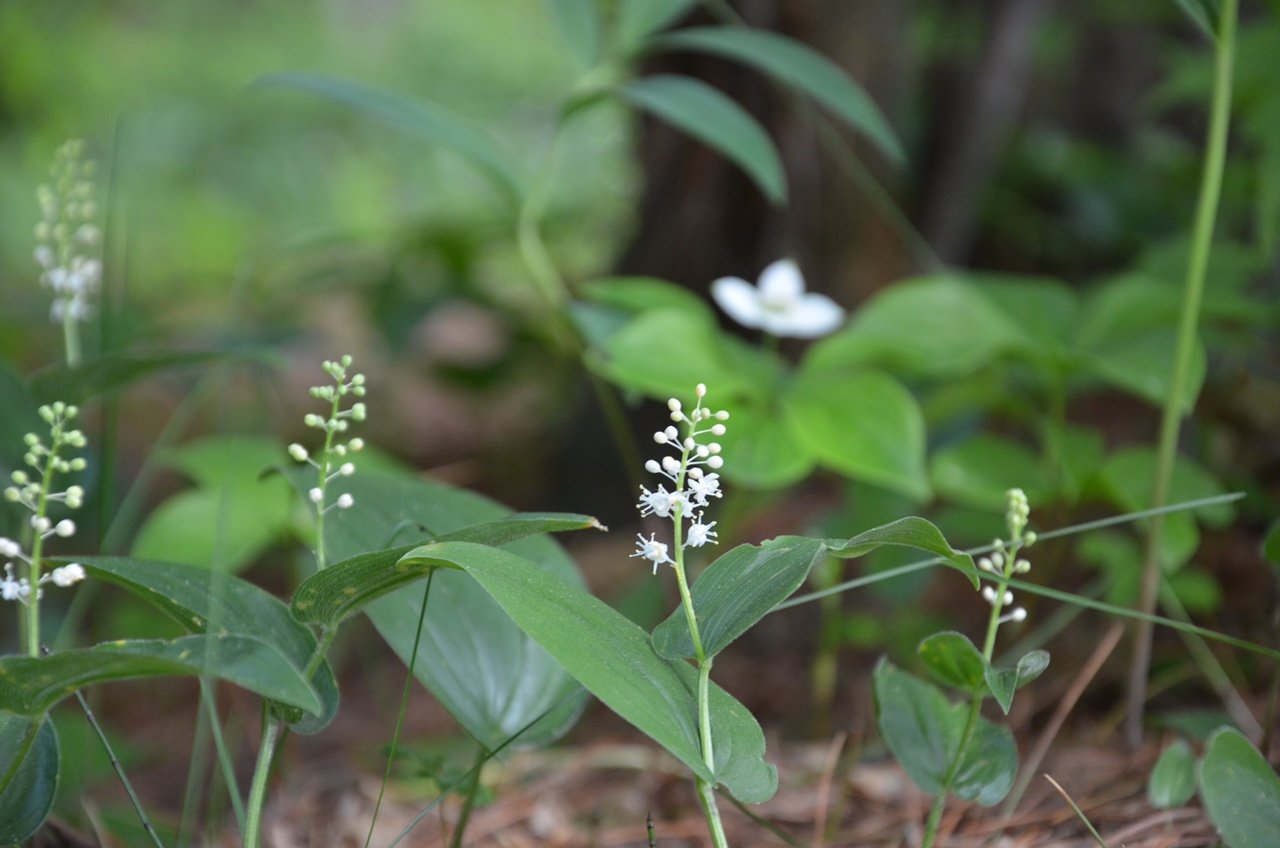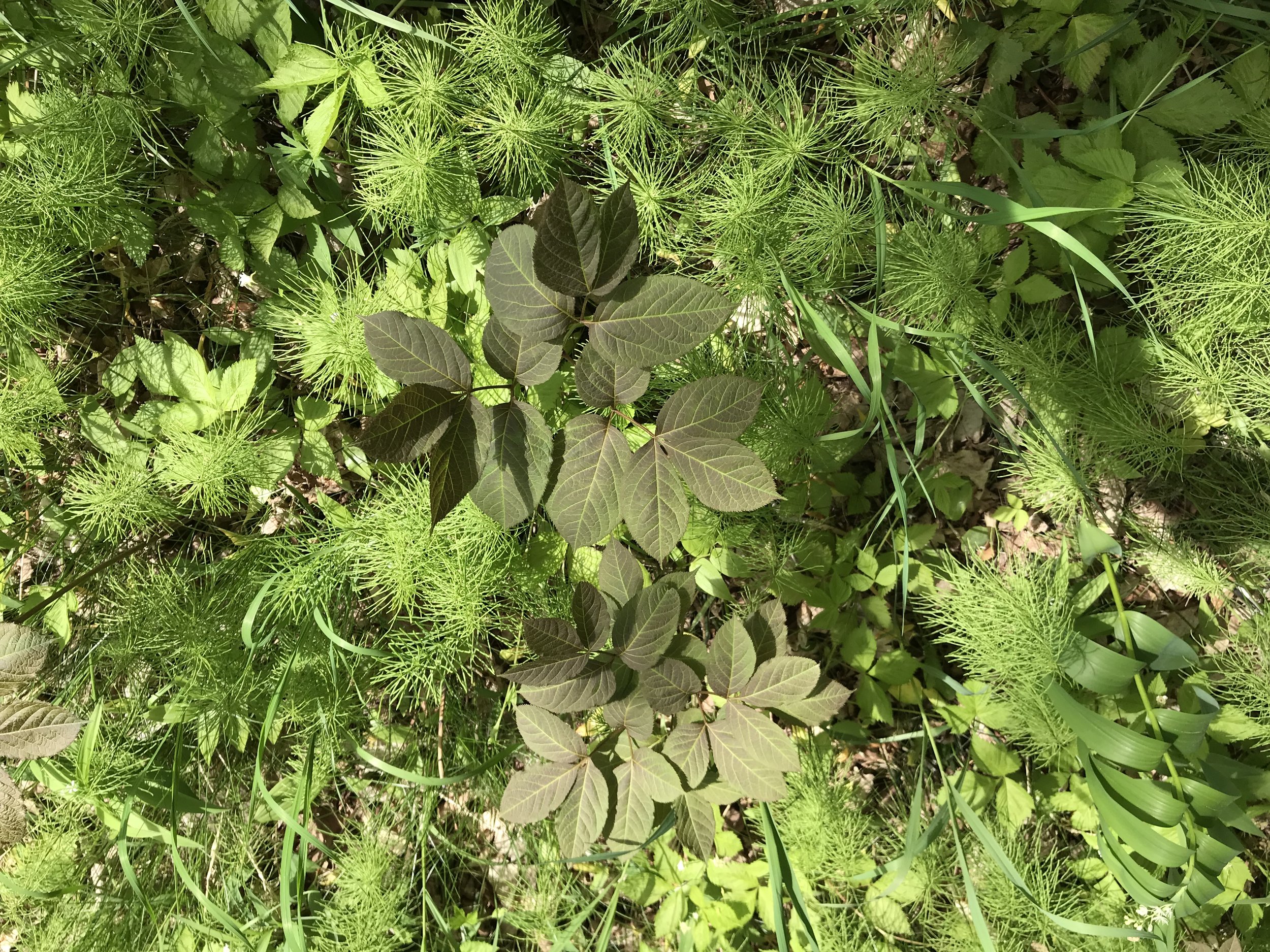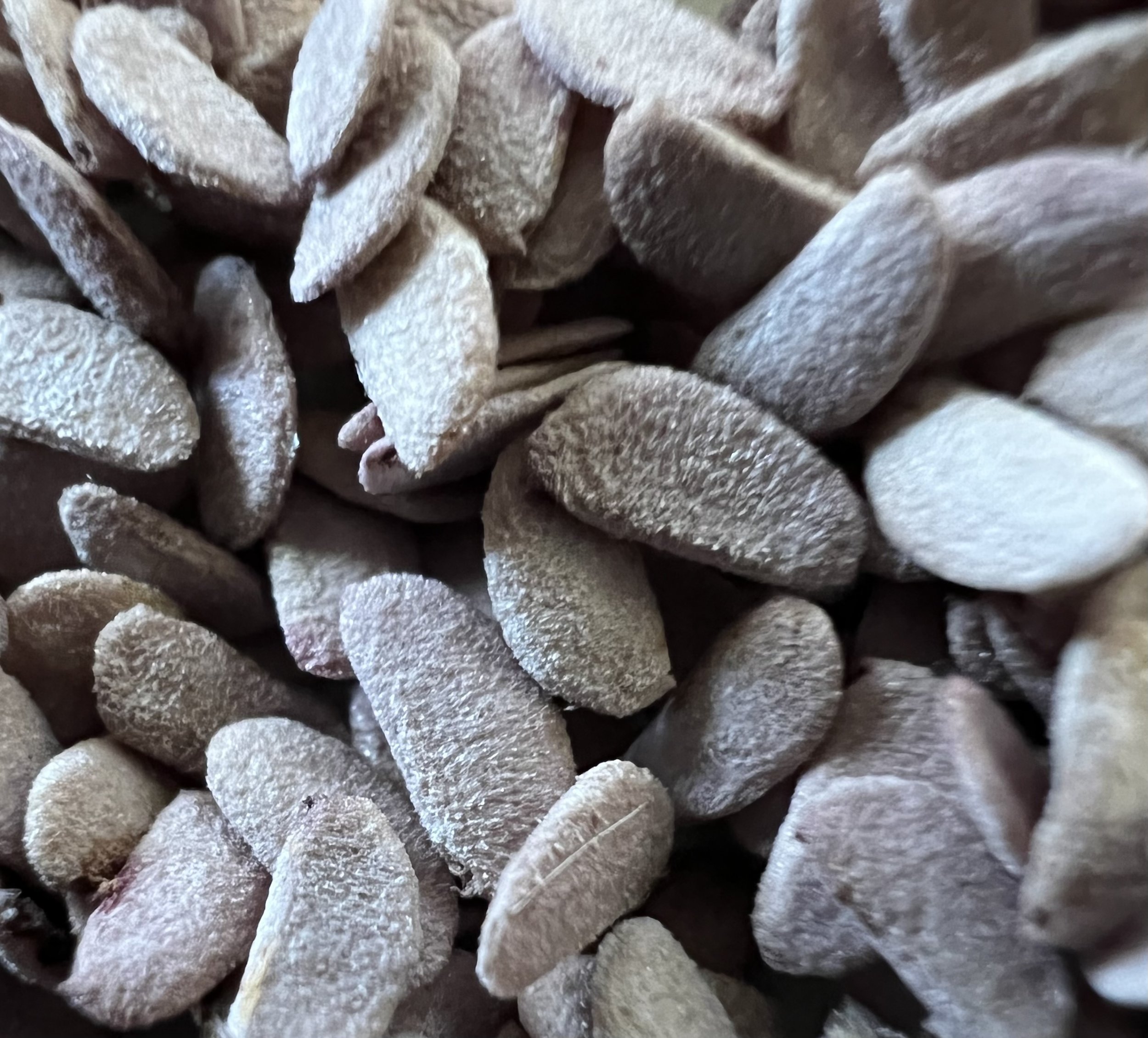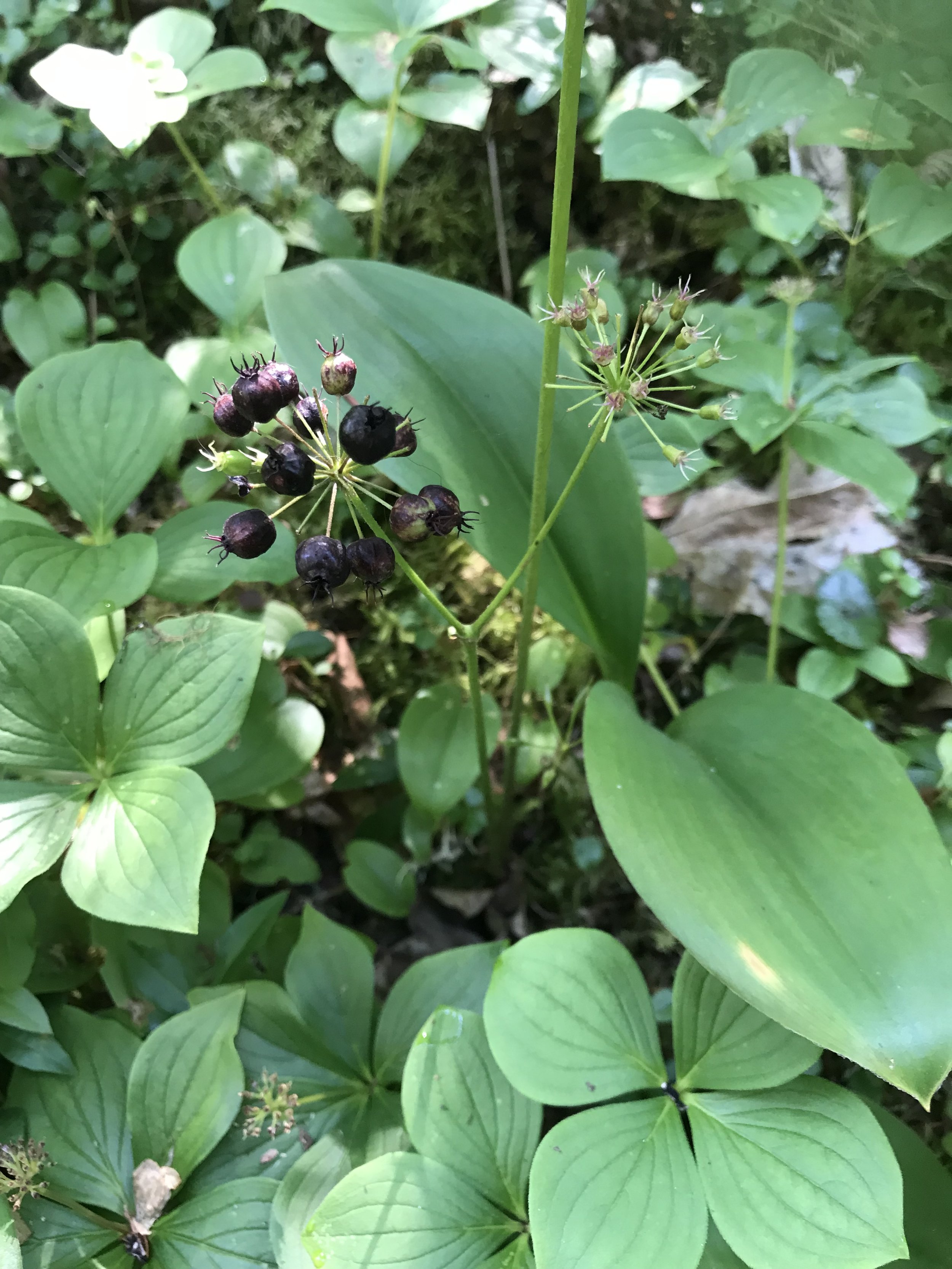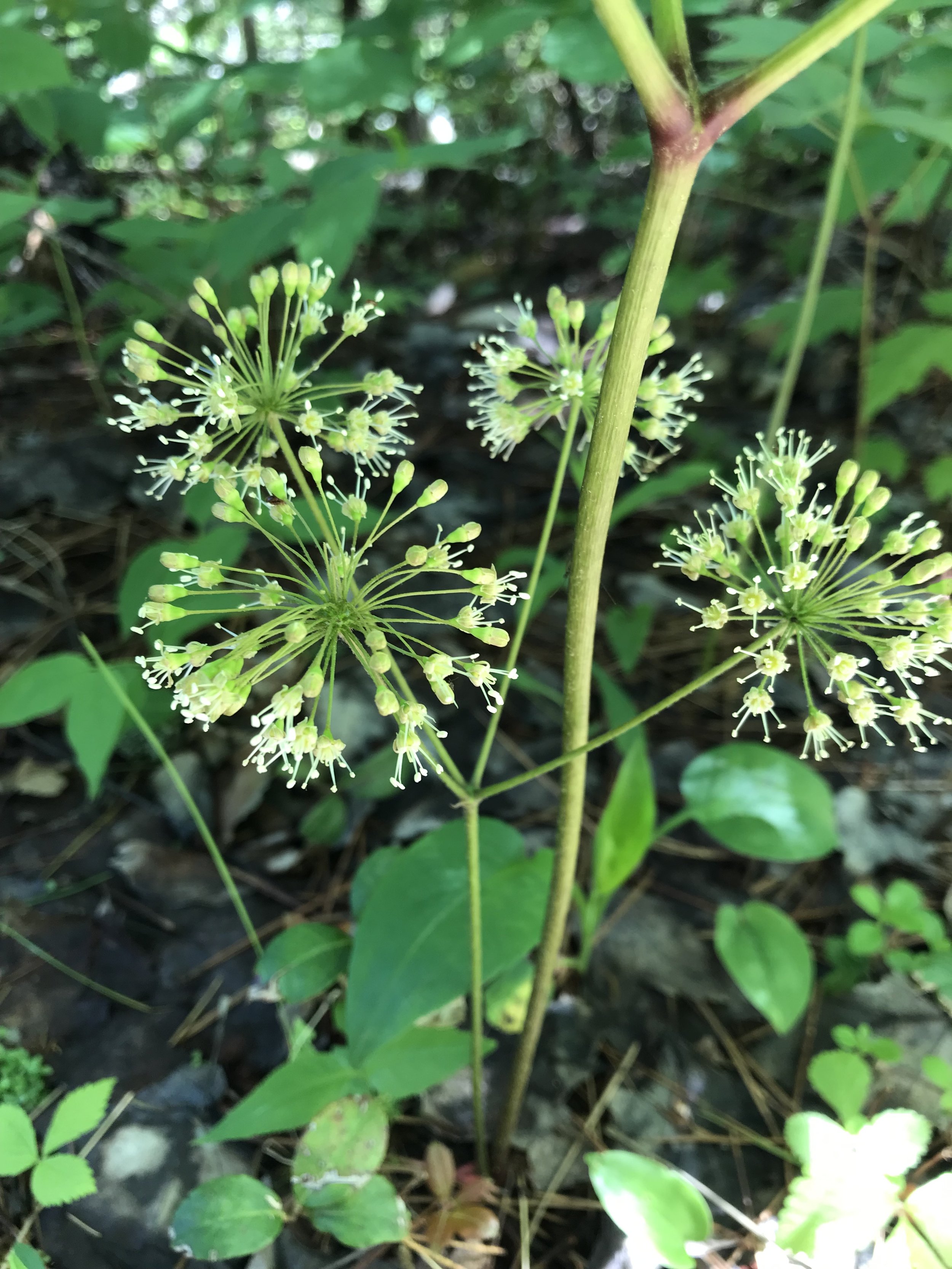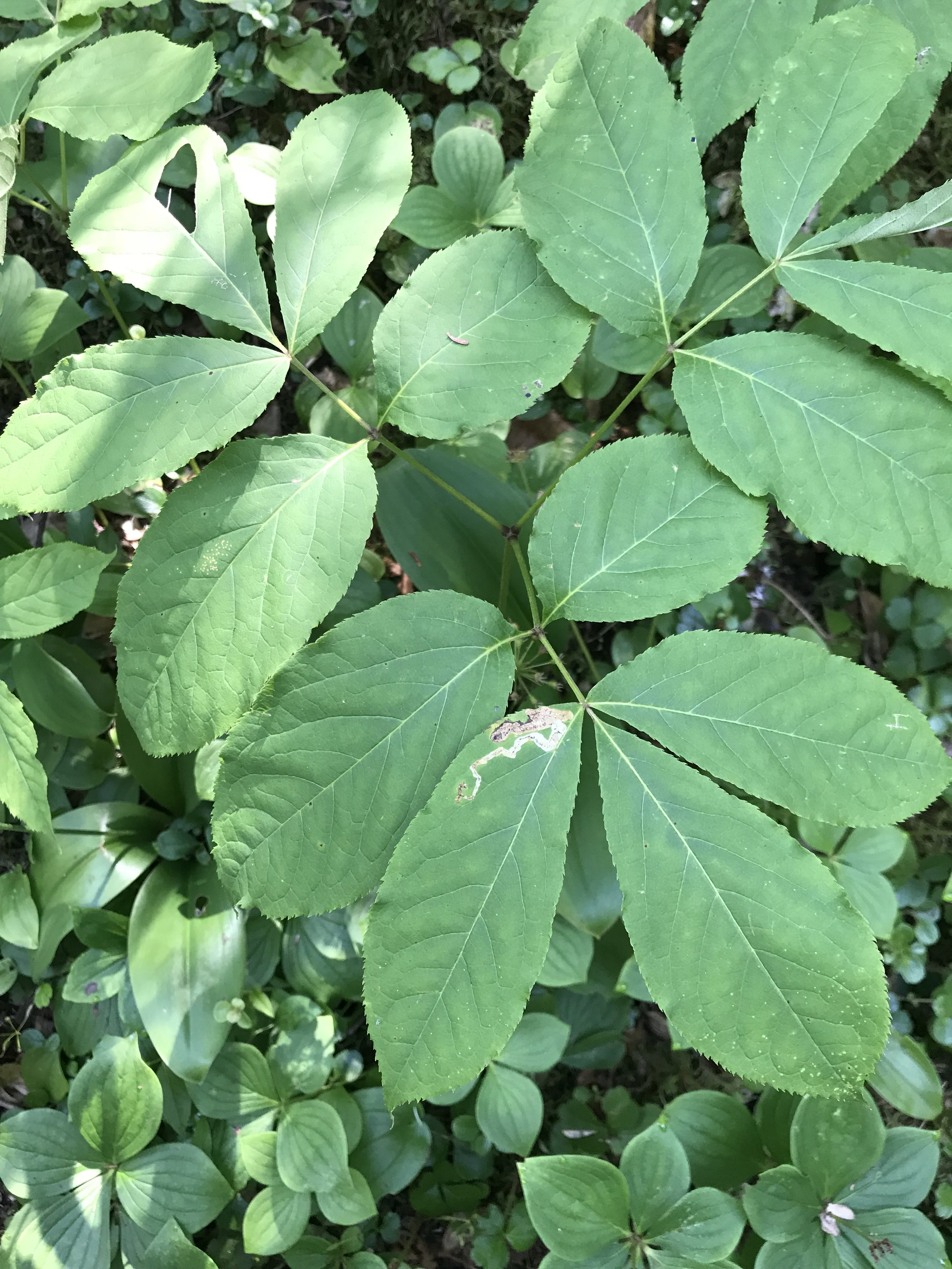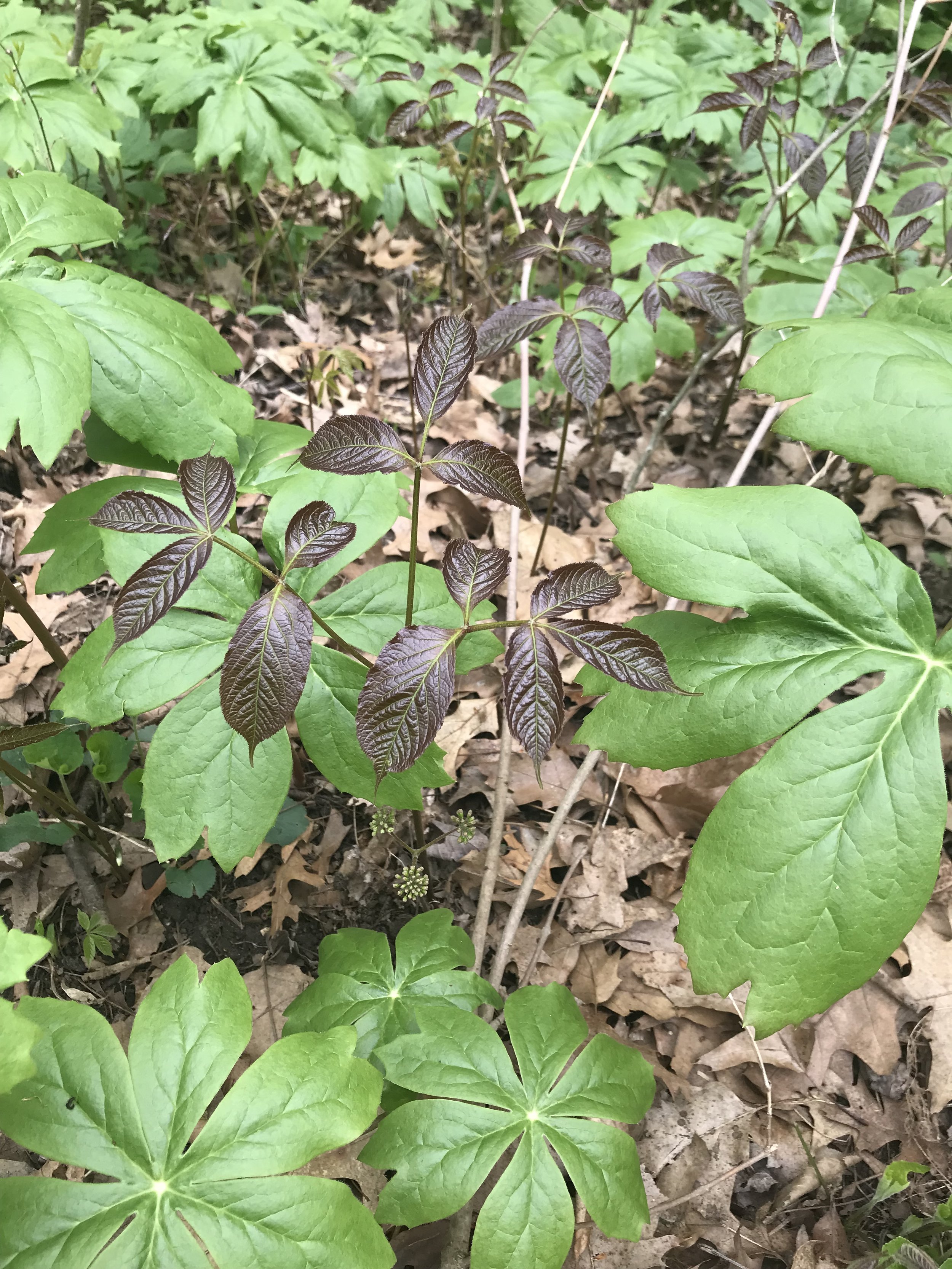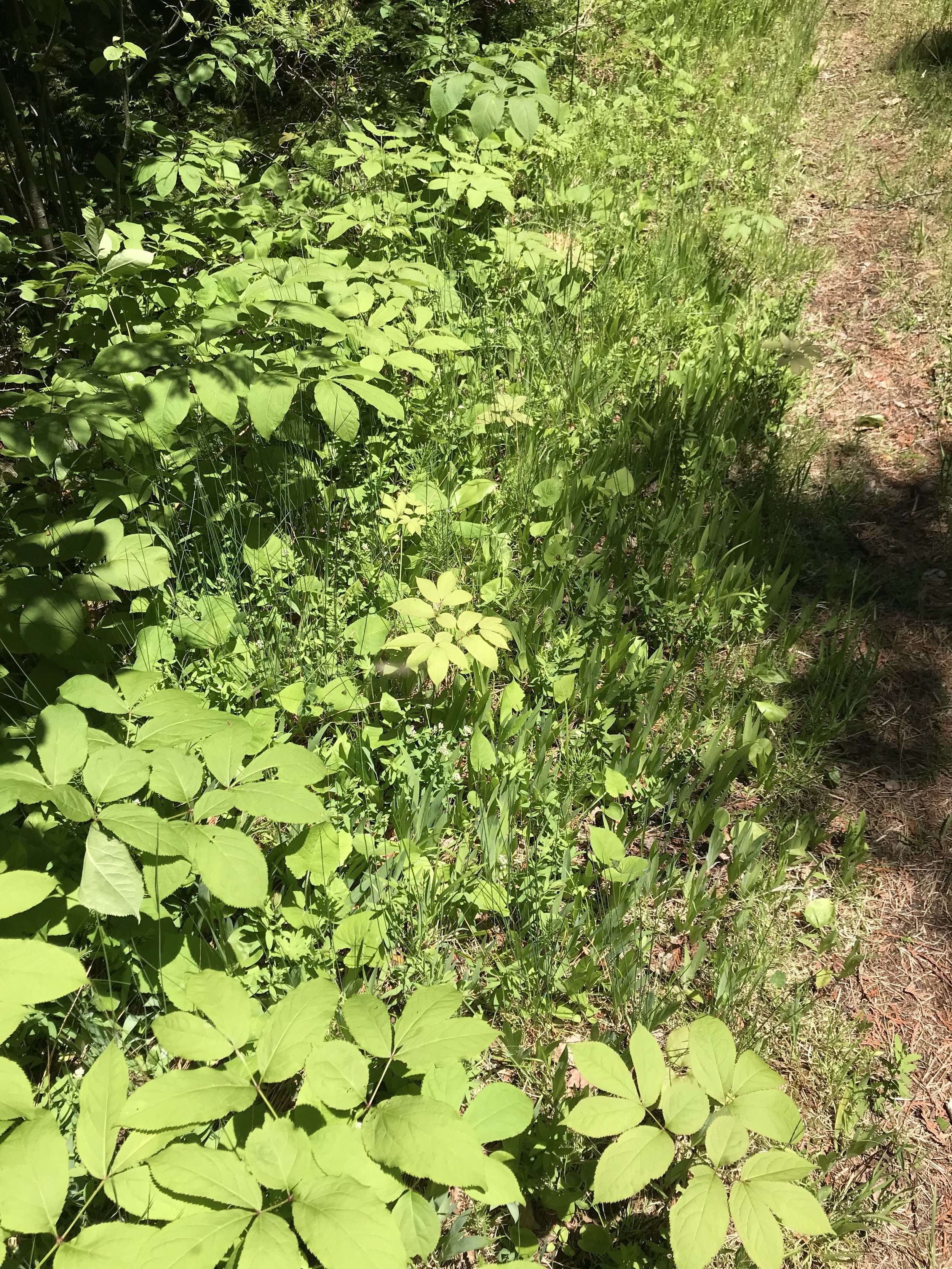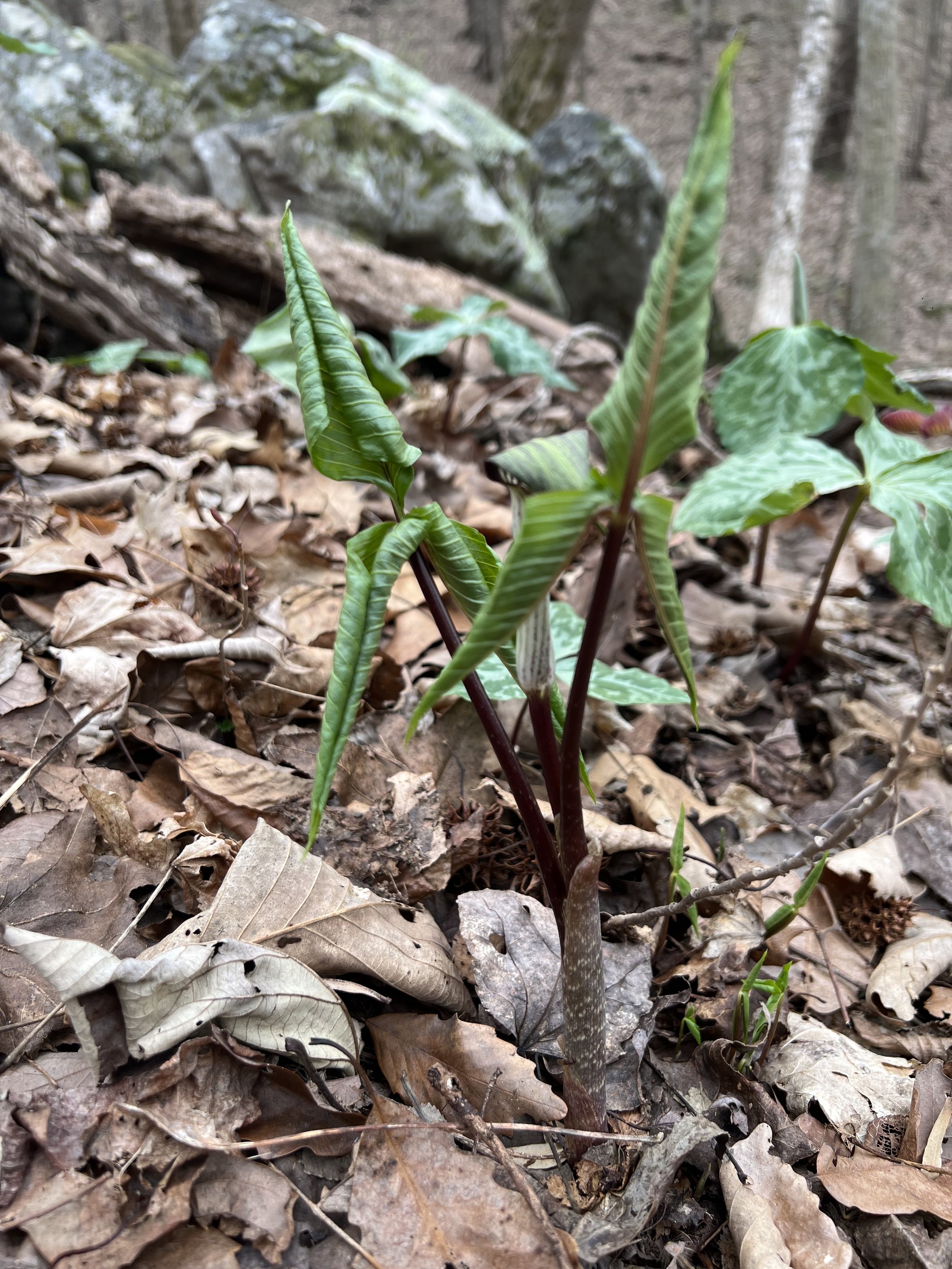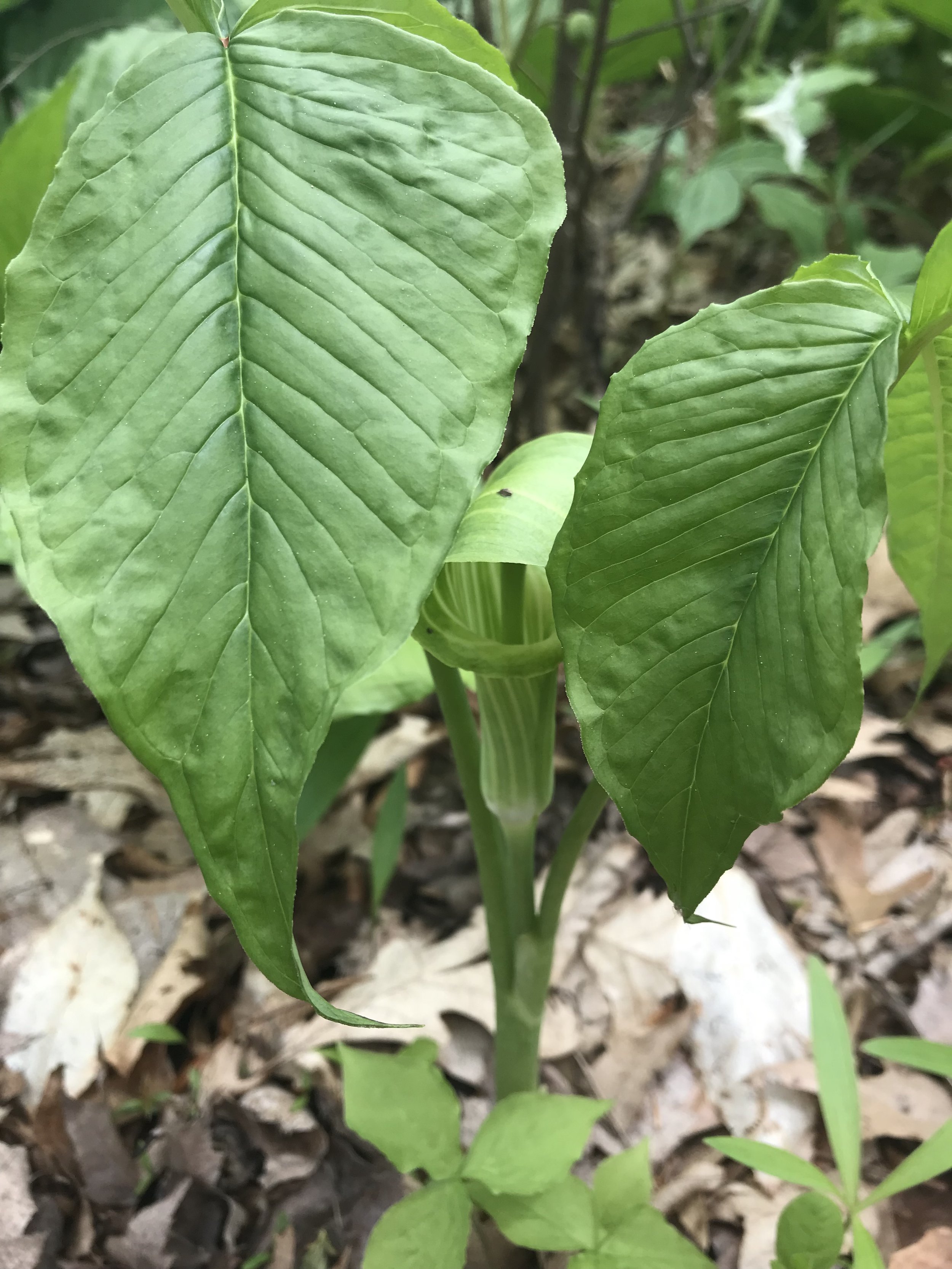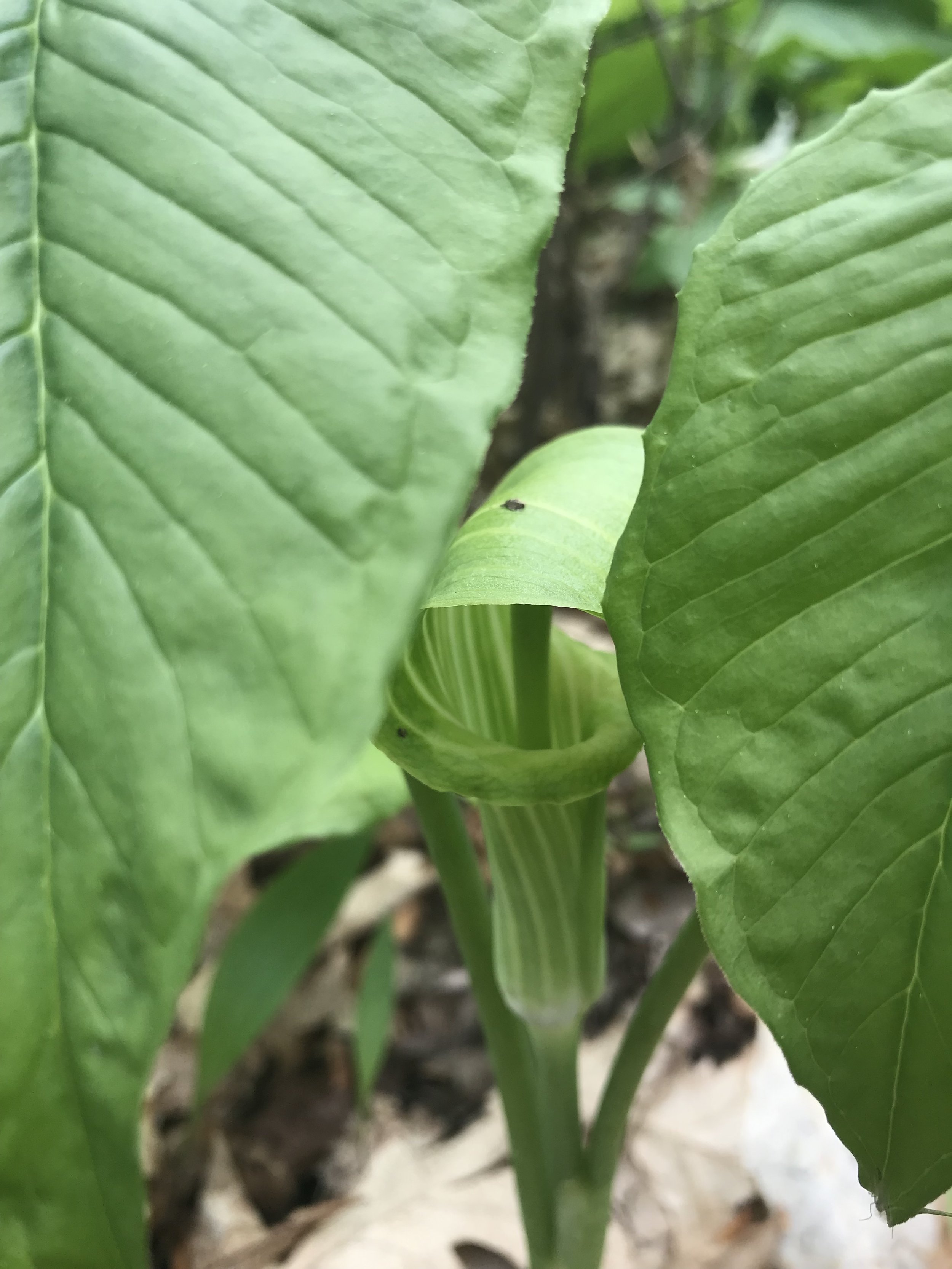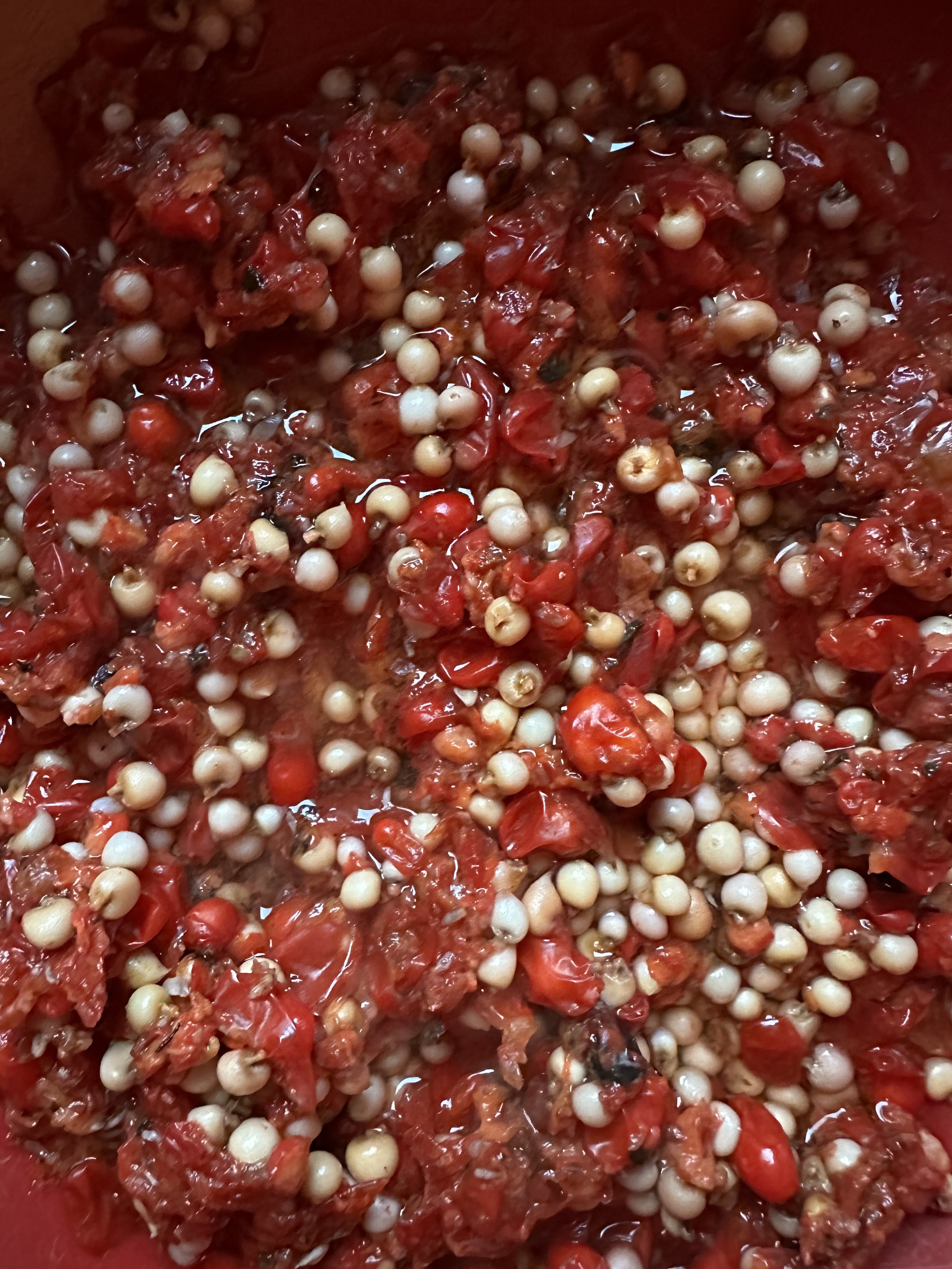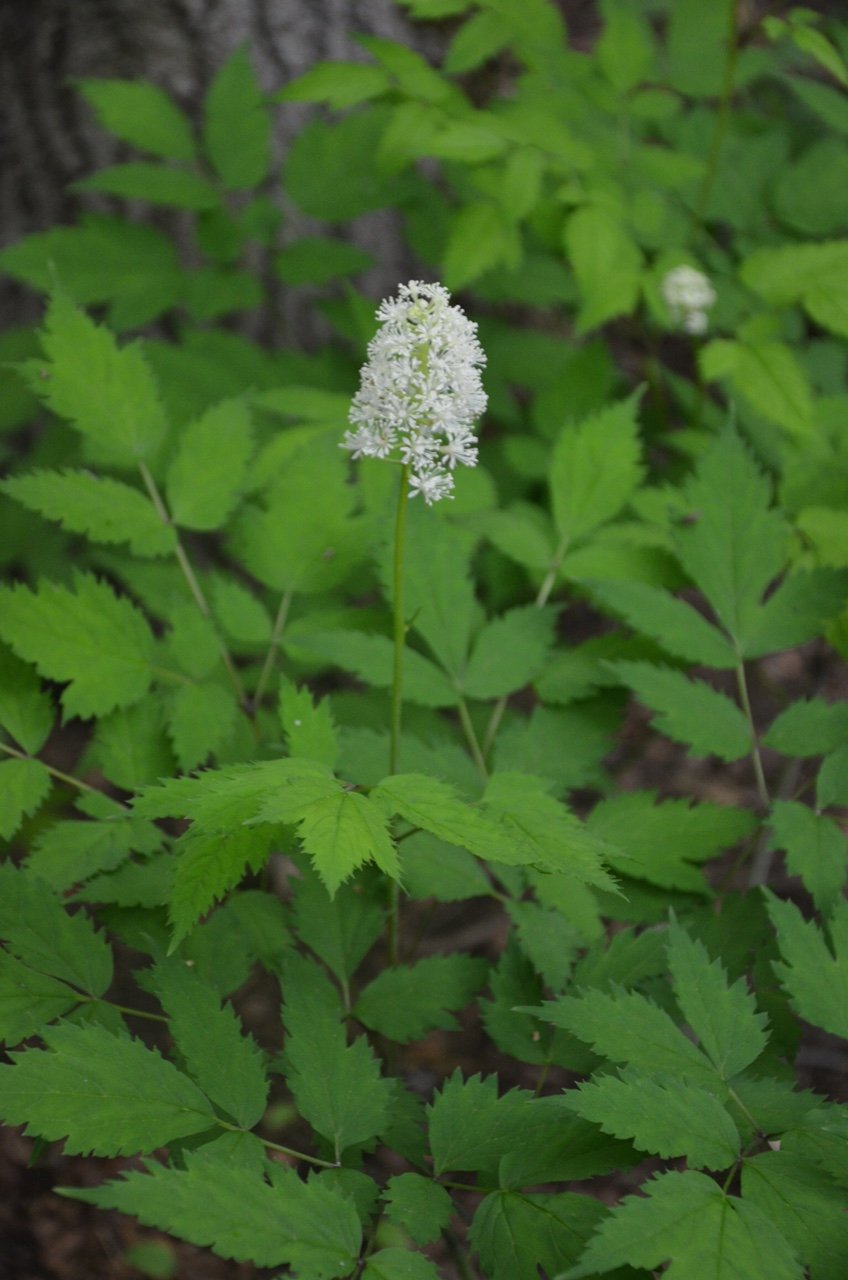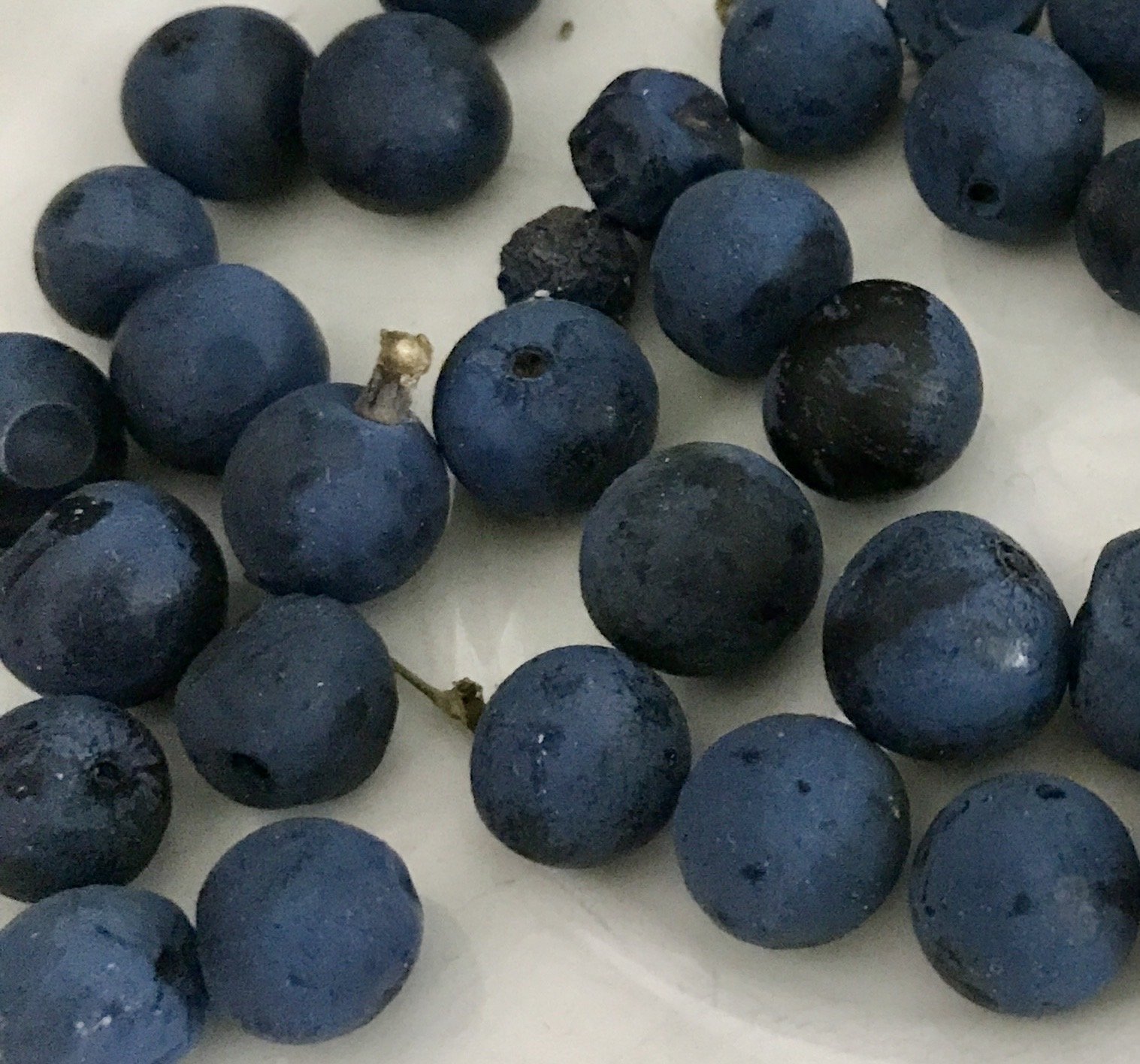 Image 1 of 11
Image 1 of 11

 Image 2 of 11
Image 2 of 11

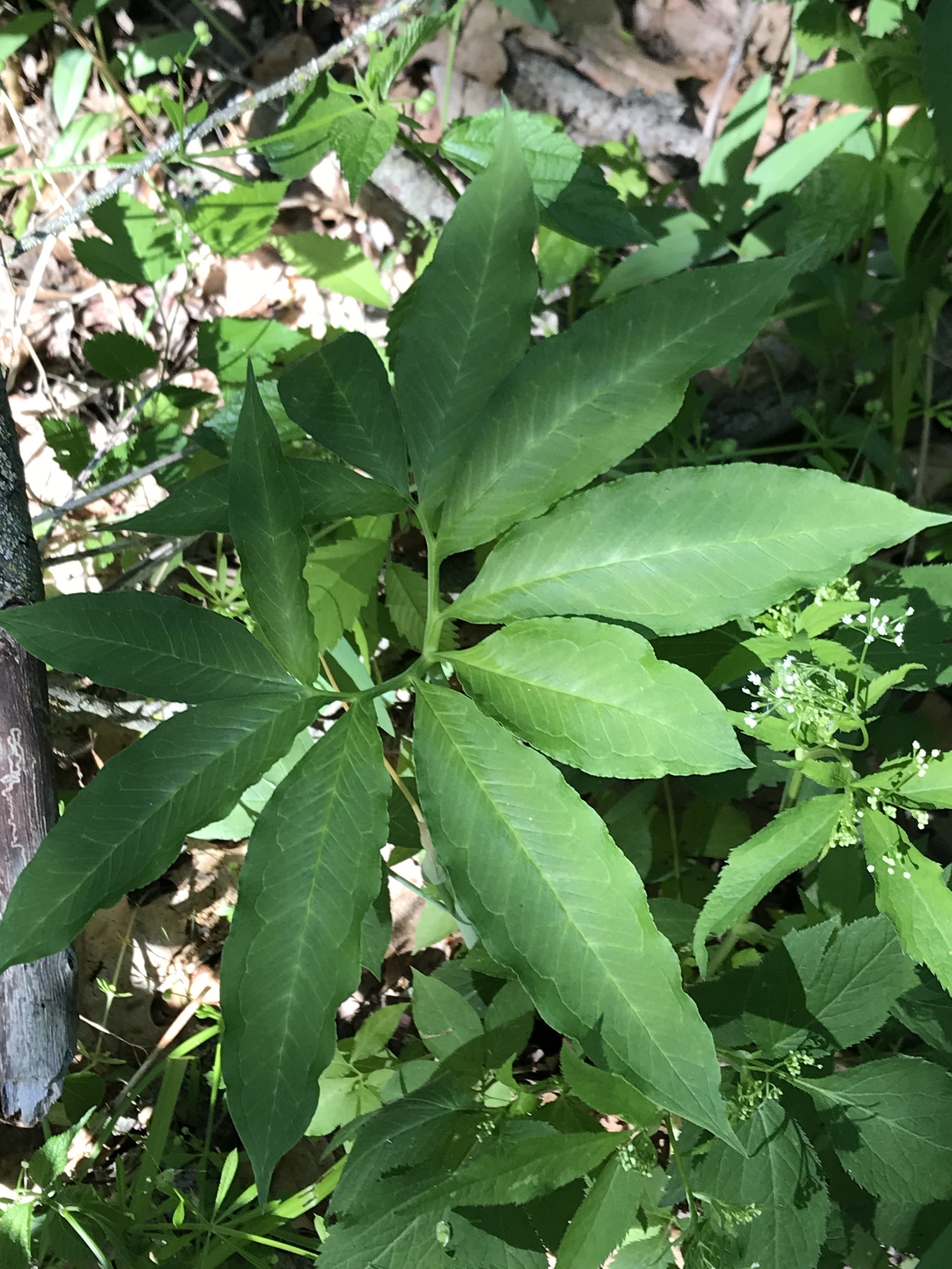 Image 3 of 11
Image 3 of 11

 Image 4 of 11
Image 4 of 11

 Image 5 of 11
Image 5 of 11

 Image 6 of 11
Image 6 of 11

 Image 7 of 11
Image 7 of 11

 Image 8 of 11
Image 8 of 11

 Image 9 of 11
Image 9 of 11

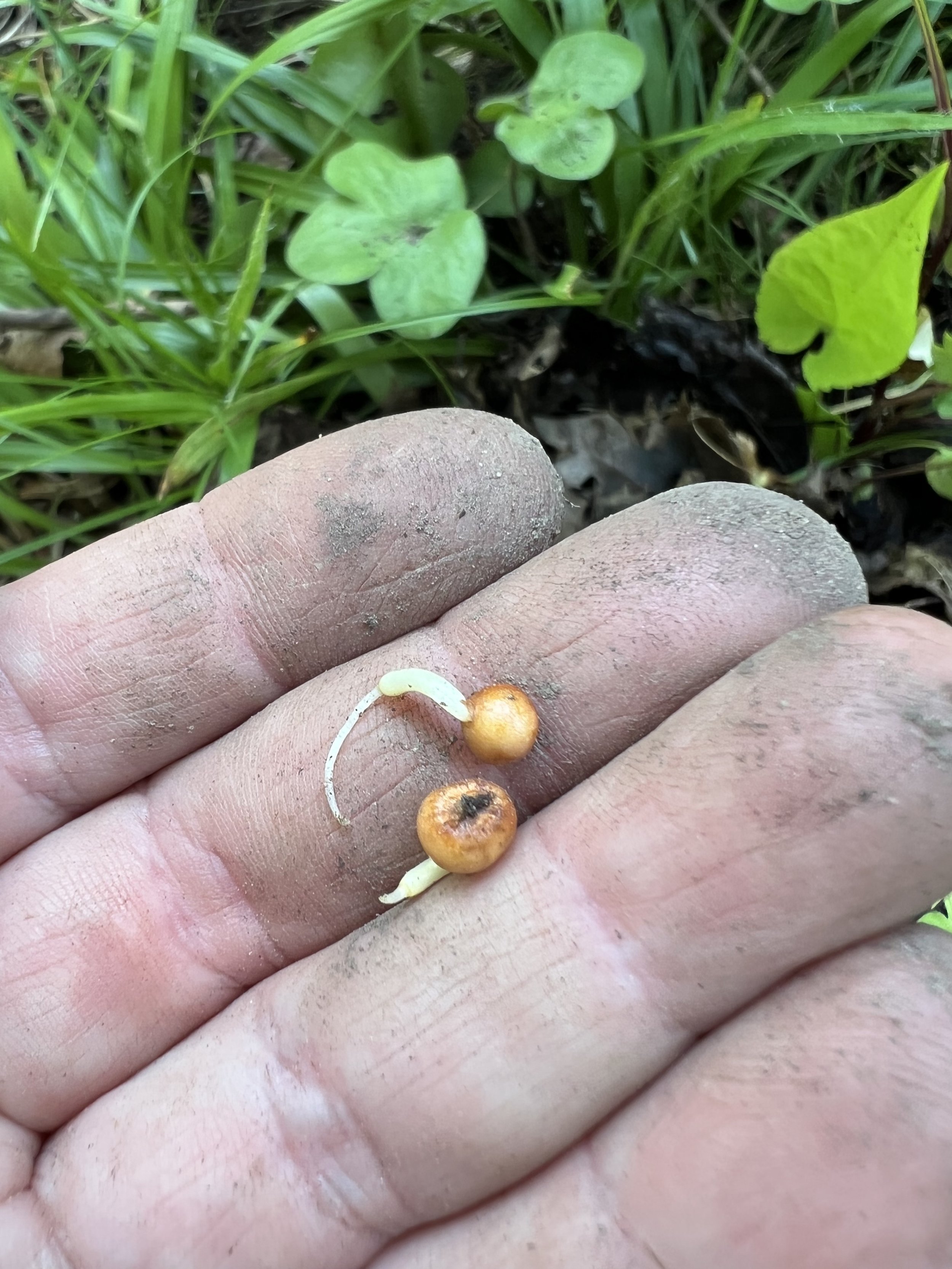 Image 10 of 11
Image 10 of 11

 Image 11 of 11
Image 11 of 11












Green Dragon (Arisaema dracontium)
Green Dragon, also known as Dragon Root, is in the same Genus as Jack-in-the-Pulpit. Two obvious differences are that the compound leaf of green dragon has more leaflets, from about 8-15. And the spadix of green dragon is greatly elongated, looking like the neck of a dragon. Both inhabit wet woods and floodplains including river banks. The leaflets of the one single leaf form a semi-circle above and flower. The root structure includes corms that can be divided.
Use decaying leaves to keep the soil rich and moist when you place it in the home garden setting. This plant can tolerate the sun if it is kept wet. Otherwise be sure to plant it in a shady spot that gets sunshine in the early spring.
The flowers have a slight fungus odor and attract fungus gnats and other small insects. Like in Jack-in-the-Pulpit, after fertilization, green berries form that slowly turn an inviting red and create late summer and fall interest. Birds eat and disperse the berries.
Michigan Flora mentions that this plant produces small offset corms on the top of the main corm which are released in their second year and can be moved by flood waters.
When this plant is found in natural settings, it is an indicator plant that lets you know that the area has not had high disturbance.
Green Dragon (Arisaema dracontium)
Michigan Flora reference page for state distribution: Green Dragon
height: 1-3 feet
bloom time: May-June
soil: wet, rich
sun: partial, shade
plant spacing: 18”
flower: white, yellow, green
life cycle: perennial
family: Araceae
Green Dragon, also known as Dragon Root, is in the same Genus as Jack-in-the-Pulpit. Two obvious differences are that the compound leaf of green dragon has more leaflets, from about 8-15. And the spadix of green dragon is greatly elongated, looking like the neck of a dragon. Both inhabit wet woods and floodplains including river banks. The leaflets of the one single leaf form a semi-circle above and flower. The root structure includes corms that can be divided.
Use decaying leaves to keep the soil rich and moist when you place it in the home garden setting. This plant can tolerate the sun if it is kept wet. Otherwise be sure to plant it in a shady spot that gets sunshine in the early spring.
The flowers have a slight fungus odor and attract fungus gnats and other small insects. Like in Jack-in-the-Pulpit, after fertilization, green berries form that slowly turn an inviting red and create late summer and fall interest. Birds eat and disperse the berries.
Michigan Flora mentions that this plant produces small offset corms on the top of the main corm which are released in their second year and can be moved by flood waters.
When this plant is found in natural settings, it is an indicator plant that lets you know that the area has not had high disturbance.
Green Dragon (Arisaema dracontium)
Michigan Flora reference page for state distribution: Green Dragon
height: 1-3 feet
bloom time: May-June
soil: wet, rich
sun: partial, shade
plant spacing: 18”
flower: white, yellow, green
life cycle: perennial
family: Araceae
Green Dragon, also known as Dragon Root, is in the same Genus as Jack-in-the-Pulpit. Two obvious differences are that the compound leaf of green dragon has more leaflets, from about 8-15. And the spadix of green dragon is greatly elongated, looking like the neck of a dragon. Both inhabit wet woods and floodplains including river banks. The leaflets of the one single leaf form a semi-circle above and flower. The root structure includes corms that can be divided.
Use decaying leaves to keep the soil rich and moist when you place it in the home garden setting. This plant can tolerate the sun if it is kept wet. Otherwise be sure to plant it in a shady spot that gets sunshine in the early spring.
The flowers have a slight fungus odor and attract fungus gnats and other small insects. Like in Jack-in-the-Pulpit, after fertilization, green berries form that slowly turn an inviting red and create late summer and fall interest. Birds eat and disperse the berries.
Michigan Flora mentions that this plant produces small offset corms on the top of the main corm which are released in their second year and can be moved by flood waters.
When this plant is found in natural settings, it is an indicator plant that lets you know that the area has not had high disturbance.
Green Dragon (Arisaema dracontium)
Michigan Flora reference page for state distribution: Green Dragon
height: 1-3 feet
bloom time: May-June
soil: wet, rich
sun: partial, shade
plant spacing: 18”
flower: white, yellow, green
life cycle: perennial
family: Araceae
